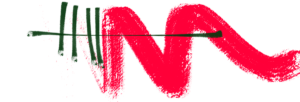Hi, I'm Erin.
I build transformative tech brands via content and social media marketing.
I’m a cerebral person with insatiable curiosity. I’ve always been driven to look deeply at persistent and pervasive challenges, identify patterns, and write about what’s going on in the world.
“The desire to write is like an affliction, which you’re either born with or you’re not.”
Growing up I wanted to become a journalist, but when I started college, journalism was in turmoil. Fortunately, content marketing was taking off along with new opportunities to write on behalf of brands and organizations with compelling missions.
"One of the exciting things about the Internet is that anyone can publish whatever content they can create."
As my marketing career has progressed, I’ve never been able to pull myself away from studying complex systems and socioeconomic injustice. I recently realized that, ironically, one of the most effective interventions for solving socioeconomic problems was the very technology that upended journalism: the Internet.
In college, I studied taxation, subsidies, incentives, constraints, feedback loops, and policy frameworks, all useful leverage points, but all mostly dealt with the existing paradigm.
We never discussed the paradigm-shifting potential of breakthrough technology such as Web 2.0, and now, web 3.0.
“...To change something, build a new model that makes the existing model obsolete.”
Web 3.0 has the paradigm-shifting potential I was seeking in my poli sci classes. Web 3.0 is facilitating peer-to-peer trust and transactions without using costly or opaque intermediaries, attempting to flip organizational structures from community input to community-led, and is starting to force governments and legacy institutions to adapt to these changes.
I believe that leveraging blockchain technology to decentralize institutions where power has been traditionally concentrated, scaling the circular economy, preserving native habitat, practicing indigenous, regenerative approaches to agriculture, and eating food from nearby are some of the most critical paths forward for a more equitable society and healthy planet.
I also love to be in the kitchen and outside. In 2013, I took a NOLS course, where I spent 30 life changing days immersed in the Alaskan wilderness. This intimate experience of living deliberately in nature stirred something deep inside me that continues to guide me. My experience in Alaska inspired me to start rock climbing. By way of climbing, I’ve explored some of the most inspiring places in North America and pushed past my perceived physical and mental limits.
Above all, I seek to challenge myself and challenge norms, pursue adventure and rigorous thinking, cultivate mindfulness in ordinary activities, and use my marketing and communications skills for the betterment of the planet and society. As I continue on this journey, I fall more humbly and deeply in love with humanity and all that nature provides.
